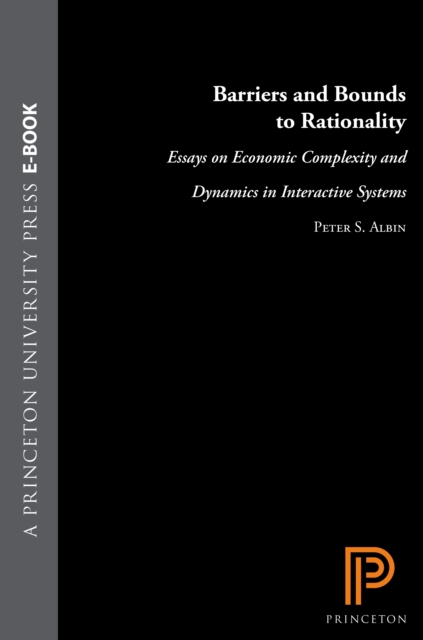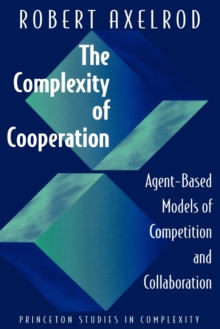
Barriers and Bounds to Rationality : Essays on Economic Complexity and Dynamics in Interactive Systems PDF
by Peter Albin
Edited by Duncan K. Foley
Part of the Princeton Studies in Complexity series
Description
Peter Albin is known for his seminal work in applying the concepts of adaptive dynamical systems, first developed by biologists and physicists, to the study of economic systems. This book is a collection of his pathbreaking articles on the application of cellular automata and complexity theory to economic problems. Duncan Foley provides a thoughtful introduction in which he reviews the disparate analytical sources of Albin's work in the theories of nonlinear dynamical systems, economic dynamics, cellular automata, linguistic and computational complexity, and bounded rationality.
Albin has analyzed economic systems as interactions of highly complex components (i.e., intelligent human beings). He uses the theories of generative linguistics and cellular automata to establish that the complexity level of economic systems is, in principle at least, that of a Turing machine or general-purpose computer, establishing that classic economic approaches to the problems of household and firm choice, macroeconomic prediction, and policy evaluation may give rise to undecidable propositions and uncomputable functions. He develops simple models of dynamic economic interaction based on cellular automata which illustrate the inherent complexity of economic interactions and the resulting challenge they pose to traditional theories of rational economic behavior. These models explore the dynamics of the business cycle, decentralized market trading, and the emergence of cooperation in a novel local-interaction version of the repeated prisoners' dilemma game. Albin's work provides a unique and important perspective on economic systems.
Information
-
Download - Immediately Available
- Format:PDF
- Pages:296 pages
- Publisher:Princeton University Press
- Publication Date:12/10/2021
- Category:
- ISBN:9780691237589
Other Formats
- Hardback from £134.39
Information
-
Download - Immediately Available
- Format:PDF
- Pages:296 pages
- Publisher:Princeton University Press
- Publication Date:12/10/2021
- Category:
- ISBN:9780691237589










